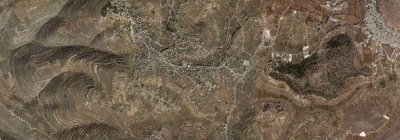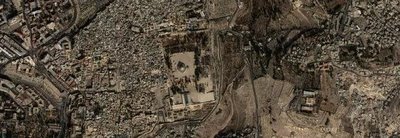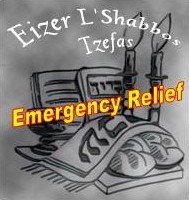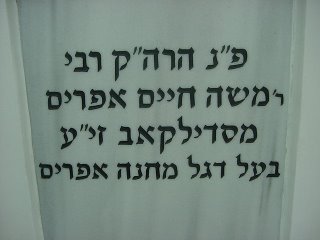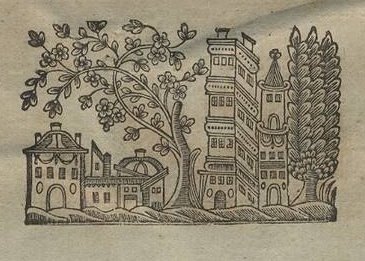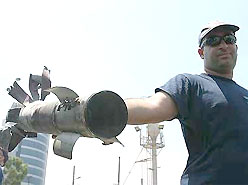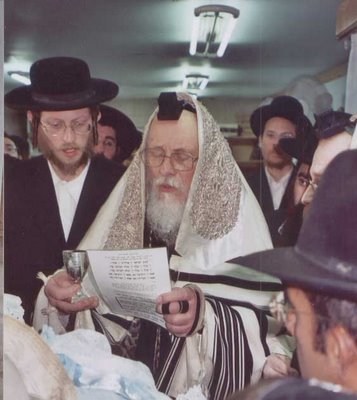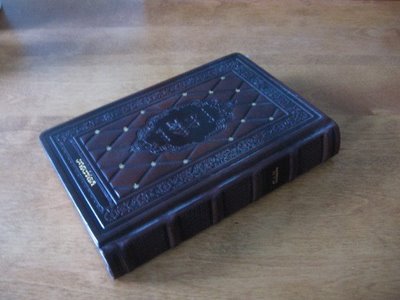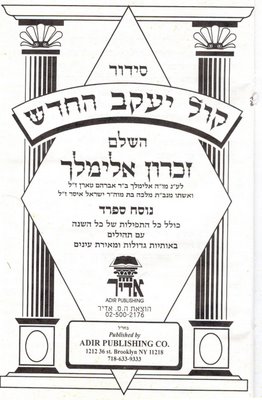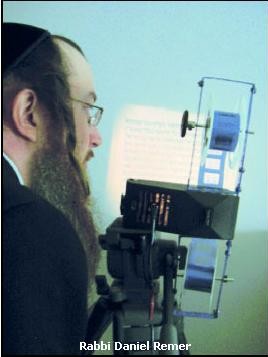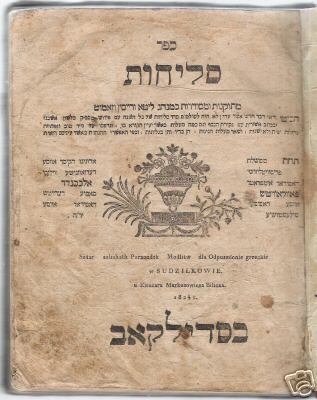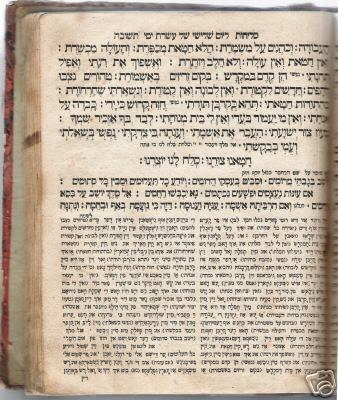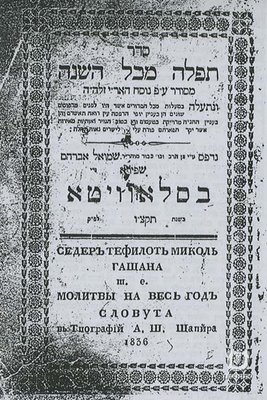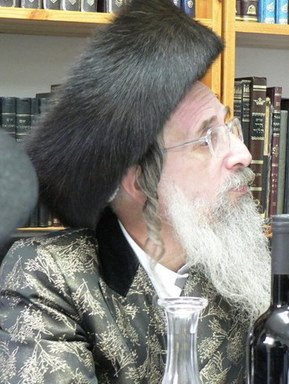This morning Yoni Lipshutz of Simply Tsfat sent me an e-mail and asked that I share this e-mail he received from Adinah, a resident of Tsfat:"Miraculous days bring clearer insights.
After Tuesday's 52 rockets being shot at Tsfat and only three people lightly injured, I woke up Wednesday morning, with what was for me, getting to the kernel of this war.There are 4 holy cities in the Land of Israel according to our tradition and each is connected to an element.
Hebron is earth, as the Patriarchs and Matriarchs, (Sarah/Abraham, Rebbeca/Isaac, Leah/Jacob) are buried there. Jerusalem is fire as it is the Heart where the eternal flame burns. Tiberias is water as the main body of inland water is there.
And Tsfat is air, the mystical city.
Someone asked a Holy man the other day, "Why is Tsfat being so heavily bombarded?"
"Because Tsfat is a holy city and the source of evil behind this is the head of Iran. The source of evil is trying to destroy holiness."
This gave a new thought to the endless boom, boom , boom. Made it a little easier to hear. But something didn't totally settle in me. "Holiness" – "Evil"…what does that really mean? Wednesday morning it came to me.
Tsfat, the city of air. Air is Life. This is the war that is within us all that is being expressed outside on the planet in technicolor. This is the war between choosing Life, and choosing Death. Terrorists blow themselves up, send children out to the front line, hide behind innocent people, in their fight to bring death to others, and then glorify it. This is the most extreme expression of "choosing death". We all have it subtly and not so subtly within us. Death is the lack of life force within something. Lack, our sense of lack that eats at our innards, is an expression of feeling dead within. At the basic level, when we are hungry, our body is saying "I am in the process of decay and if some life force- food is not put in me I will die."
At this point in Creation, we have no choice in this aspect of lack within ourselves. But there is the other lacks that is within our realm of choosing Life or choosing Death.
Appreciation is an active expression of choosing Life. Articulating consciously appreciation for even the littlest things, brings more of a sense of life. Try a day of consciously appreciating everything, even the roll of toilet paper you are using. Ahhh……Life.
A day of constantly focusing on what is lacking will bring such an energy drain, one will feel "dead" by the evening. Believing in oneself is an expression of choosing Life. The more I believe in my ability to become who I was truly created to be, the more Life comes through me. All fallen fears come from not humbly believing in one's becoming one's unique self- one's unique gift to the planet. We all know the feeling of how fear literally creates a feeling of tightness, shortness of breath, block, disconnection….expressions of death. Hearing the boom, boom outside, I watch how the close booms are technicolor vibrations of death, intending to bring fear and death, or at best just destruction.
Destruction……hmmm…… Israel bombs are intended to destroy the infrastructure of Hizballah/Hamas….create a disconnection. (Homeopathically removing the force of "disconnection" through disconnection.) May God protect all of the innocent Lebonese and Palestinian people who are being held "hostage" as the Hizbollah/Hamas/Fatah hides amongst them. Which brings another insight into this hologram……Since everything that is happening in the physical world represents inner dimensions that are within us all, what is this desire for death- Hizbollah/Hamas/Fatah- hiding deeply, intertwined within our desire for Life- the innocent Lebanese and innocent Palestinians?
Perhaps if we all contemplate that and find it within ourselves, we can help protect the innocent Lebanese and Palestinian people who are now being used as "shields" for the death focus. Where do we try to "fool" ourselves, make justifications, or blame others, because of our lack of appreciation and/or lack of belief in who we uniquely are?
In Israel now (and outside) there is a tremendous sense of coming together, sense of love and care. Even in the world of "money making." All the hotels in Jerusalem are giving discounts for citizens in the north. Free entrance to the zoo, discounts at grocery stores, 50% off SMS messages to "stay in touch with those you care for" as it is advertised. Now why do we need to have our existence threatened in order to come to a place of unity, cooperation, deep care? Something to think about when we are looking at the phenomena within ourselves. Everything that is happening on the outside collectively is happening within us individually. Monday was my day of breakdown. In the morning I started arranging for 3 of our children who were in Jerusalem, to move on to different places. When I heard that a suicide bomber was caught up the street from where the children were staying, fear gripped me so deeply, my mind went into chaos. Where should the children be? I frantically tried to "figure out" the safest place which at the time seemed "nowhere."
"Bring them back to Tsfat! How can Ohr Eden go to Bnei Brak? Its near Tel Aviv! How can Hodaya and Yisrael Labe go to Emanuel? There are Palestinian villages all around that place!"
I burst into tears and just sobbed for a few minutes, allowing the tension that I had been holding to release. "Ahh….this is exactly what these evil people want. They want me to be in fear," came to my mind. "And who is allowing them to be a vehicle of possibly implanting fear?" a subtle inner voice asked. "OK. Yes, obviously the Holy One is allowing them to play this out." "And why would the Holy One, who wants Life and is the Creator and Love itself, why would He direct such a thing?" from the subtle inner voice.
"To force me to the place of knowing, not just in my head, but truly in my being, that it is truly in His control. I make my efforts to make wise/healthy choices, but ultimately Life and Death are in the Divines Providence."
I then understood what I needed to do. Each choice/step I would take, should come from a place of choosing connection (in Jewish spirituality terms it means "mitzvah"- that which is intended to bring Divine connection.) I calmed down. My mind cleared. The obvious was for Ohr Eden to go to Bnei Brak where his yeshiva/school was temporarily being moved to Bnei Brak. There he would be spending his day learning Torah, with the intention of bringing Life to the world.
The other two children would be going to Emanuel to be with Hodaya's father. OK. Honoring one's father is an act of connection. So the plans were set, and I felt in alignment again (as much as possible at this point.) Yesterday when I quickly ran out into our courtyard to water the garden, hearing the booms, I thought "choose fear and focus on the booms or choose some expression of life. But what intention can I have while watering the plants?" As I sprayed the lilac tree, as the water came pouring out, I saw myself spraying life into the life…..the water flowing onto to these green innocent life giving plants….."Life, life, life" I kept thinking as the water flowed.
I ran back inside and got a call from Eliyahu McKlain. For those of you who don't know this special soul, he is a young Jewish man who has dedicated his life to making connections between different peoples of different cultures and religion here in Israel and abroad. A few years ago he snuck into Iraq and stood on stage in a huge auditorium, with his tzit tzit hanging (these are the strings of a garment the Jewish men who follow the spiritual practice of Judaism to remind them of constantly being connected to the Divine) and addressed his cousins as a Jew from Israel.
Eliyahu called to see how we were. He told me something that was like water to my soul. He has been getting calls from Palestinians who want to know more about his work and be involved. One woman in particular said "I am not buying into this death message anymore." She wants to immediately get active in his work.
There is a "commandment" in the Torah which is one of the fundamental principles in Judaism. (I dislike the word "commandment" because it doesn't give over the true meaning of the Hebrew word, which is the true directive. In hebrew the word is – "mitzvah"- which means to join together, to join in the Divine. It is a directive as a means to connect with/in the Holy One.)
"I call the heaven and the earth witness in you today, the life and the death. I set before you the blessing and the curse. Choose Life." (Deuteronomy 30:19)
We are setting out in a few hours for Jerusalem, the holy fire of the heart, for Shabbat. May the Holy One guide all of our paths in Life through our choosing Life. And as all of us choose Life, may it bring an end to this war, and a removal of those evil forces within us and without that are intent on death."




